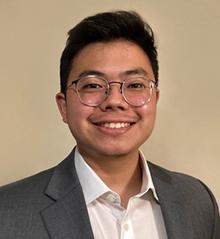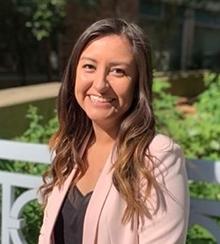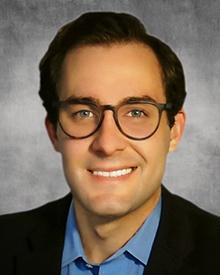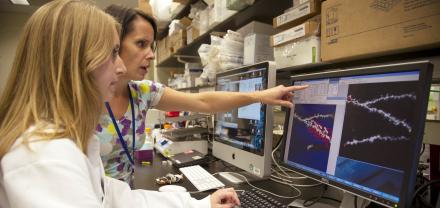The postbaccalaureate program at NINDS provides recent graduates with an opportunity to engage in biomedical research for one or two years at the NIH in Bethesda, Maryland. While in the program, postbacs are fully integrated into basic or clinical research labs, where they are trained in scientific investigation, literacy, and communication. They also participate in career planning activities and network with experts in various neuroscience research areas, with access to many NIH resources.
You qualify for this program if you are a recent college graduate who plans to apply to graduate or medical school, or other professional program (dental, pharmacy, nursing, veterinary, etc.), during your time at NINDS.
Key Features of the Program
- Mentorship from leading neuroscience investigators while performing full-time research under their guidance
- An opportunity to network and exchange ideas with other NIH research trainees and investigators
- Practical experience with technology, scientific investigation, and science communication
- Preparation for the professional school application and interview process
- Unique clinical shadowing opportunities in neurological health
- Access to seminars and lectures in neuroscience
- Participation in a wide range of career and professional development activities that enhance and broaden your training experience, such as:
- presenting oral and poster presentations
- applying for graduate/medical school
- exploring career paths in the sciences
- focusing on personal wellness
- participating in major NIH events, such as Postbac Poster Day and the Graduate and Professional School Fair
Eligibility
You are eligible for the NINDS Postbaccalaureate Program if you:
- Have earned a bachelor’s degree within the last three years, or a master’s degree within the last six months, of program start date
- Are a U.S. citizen or permanent resident
- Intend to apply to graduate or professional school during your tenure at the NIH
If you have already been accepted into M.D., Ph.D., or equivalent graduate programs, you must provide written permission to delay school entrance for up to one year to participate in research at the NIH.
Application Process
You must apply to the program online. You are encouraged to apply three to six months before you wish to begin your training at NIH. This program has no fixed start date. When you submit online, you will need to provide:
- A curriculum vitae or resume
- A list of coursework and grades
- A cover letter describing your research interests and career goals
- The names and contact information for three references
For more application information, please visit the Office of Intramural Training and Education (OITE).
After submitting your application, explore the current research conducted at NINDS laboratories. Then contact NINDS investigators directly if you’d like to train with them.
For more guidance, check out the OITE guide on “Choosing a Research Mentor” before approaching a prospective mentor. You can also contact the NINDS Research Training and Career Development Office (email) for help with finding a lab to join.
Meet a Program Trainee

Mentor: Mark Hallett, M.D.
Terance Camacho
Mentor: Mark Hallett, M.D.
Project: Utilizing transcranial magnetic stimulation techniques to explore the surround inhibition effect of the human motor system during real life motor tasks
During a previous NIH summer research experience, I found a passion at the interphase of scientific discovery and patient care. With this momentum, I pursued clinical research in the NINDS postbac program. For the past year, I have had the invaluable opportunity to work with world-class scientists and physicians. In addition, I expanded my perspectives on movement disorder research through weekly journal clubs and clinical meetings, performed cutting-edge techniques in transcranial magnetic stimulation (TMS) protocols, and relished the human connection of caregiving. I am eager to utilize this knowledge in medical school, where I look to make meaningful contributions as a future physician-scientist.

Mentor: Debra Ehrlich, M.D.
Melanie Delgado
Mentor: Debra Ehrlich, M.D.
Project: Acute effects of medium chain triglyceride nutritional ketosis on Parkinson’s disease symptoms and biomarkers
Neurodegenerative diseases have sparked my interest since volunteering at an Alzheimer’s home as a child, and I eagerly explored this interest through research at NINDS. My enthusiasm to investigate the complexities of the brain prompted me to become an NINDS postbac. I am grateful to have traveled to an international conference, observed neurosurgeries, and assisted with a new clinical trial. This past year, I transitioned from bench research to working directly with patients at the Parkinson’s clinic. Behind every mask is a story, and I learned the importance of bridging relationships with patients. At NINDS not only do you contribute to groundbreaking research, but most importantly, you form lasting mentorships.

Mentor: Kareem Zaghloul, M.D., Ph.D.
Nick Faturos
Mentor: Kareem Zaghloul, M.D., Ph.D.
Project: Applying dynamic systems and network control theory to model the effect of direct electrical stimulation to the human brain
Getting into the basic sciences was largely by accident. I’ve always hoped to attend medical school, and after taking an introductory neuroscience class my second year of undergrad, I became intrigued with basic research in the neurosciences. I spent the following summer performing neuroscience research in one of the labs at school and have continued ever since. I chose the NINDS postbac program because it offers the best of both worlds—combining patient interactions with state-of-the-art neuroscience research. Working in Dr. Zaghloul’s lab has confirmed my passions for both clinical care and basic scientific research, and I am currently in the process of applying to MD/PhD programs.
NINDS 2023 Outstanding Postbac Poster Award Winners
Winners of the NINDS Postbacs who received Outstanding Poster Awards from the 2023 NIH Postbac Poster Day:
- Athena Apfel
- Annika Backer
- Emily Baniewicz
- Melissa Cesaire
- Rameen Forghani
- John Hanson
- Elena Hayday
- Akash Kapoor
- Alexandra Lombardo
- Eleanor McCall
- Tandees Najimi
- Axel Ntamatungiro
- Shivani Patel
- Catrina Sullivan

